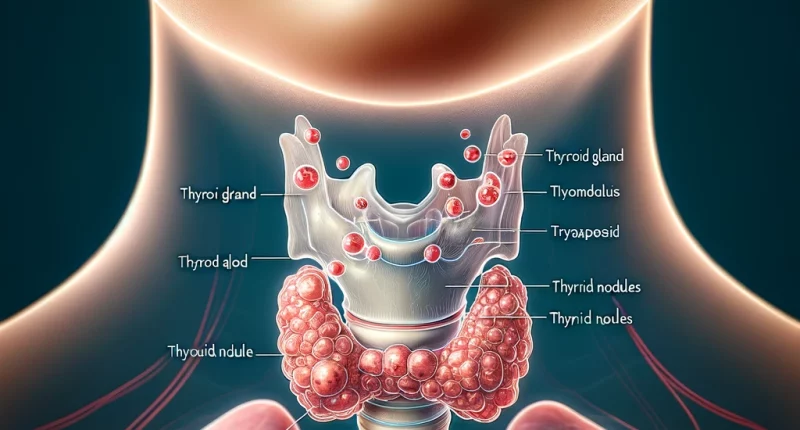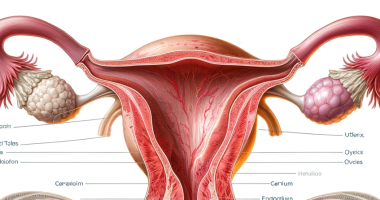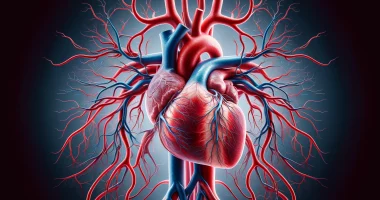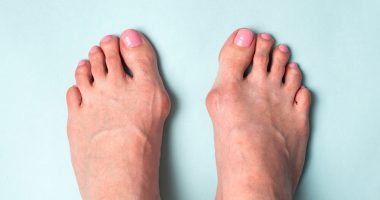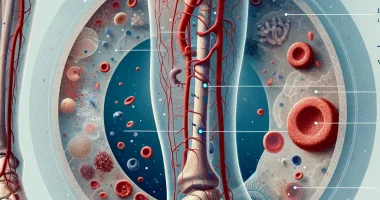Thyroid nodule
What’s that?
Thyroid nodule is an endocrine disease in which one or more nodules form in the thyroid tissue (thyroid gland). The disease can be asymptomatic for a long time, without causing the patient concern and without affecting the level of thyroid hormones in the blood.
About the disease
Among women, pathology occurs 2-3 times more often than in male patients. In the absence of control dynamics, pathology can lead to malignant degeneration of gland tissue.
Types of thyroid nodule
Classification of thyroid nodule is based on the nature of the pathological process (size, number of foci and their risk of malignization). Depending on the presence of changes in the gland on palpation, that is, palpation, according to WHO, there are degrees of enlargement of the organ.
- 0 degree corresponds to the absence of thyroid nodule (the volume of the organ lobes is not more than the volume of the distal (end) phalanx of the thumb).
- Grade 1 is diagnosed when it is possible to palpate the thyroid nodule. In this case, the enlargement of the neck area is not visualized, but is determined only manually.
- Grade 2. The thyroid nodule is visible to the naked eye.
The following forms of thyroid nodule are also distinguished:
- colloidal;
- multinodular;
- toxic;
- non-toxic.
Determination of the type of pathology is of great importance in the choice of treatment tactics.
Symptoms of thyroid nodule
The most common symptom is the formation of nodules in the thyroid tissue. Small (up to 1.5 cm in diameter) formations do not cause discomfort to the patient. Larger structures are palpated and are usually noticeable not only to the person himself, but also to others.
If the gland reaches a large size, it causes displacement and compression of the trachea and esophagus, causing the patient to experience voice changes, breathing and swallowing difficulties. Typical signs of thyroid nodule are also:
- discomfort or even pain in the thyroid area;
- frequent dry cough and/or a sensation of perspiration deep in the throat;
- subjective feeling of a lump in the esophagus;
- dizziness, blurred vision.
If the thyroid nodule affects the level of thyroid hormones, the disease is manifested only by organ compression. In the hypothyroid form, the level of T3 and T4 decreases. The patient becomes lethargic, lethargic, his immunity decreases and colds often occur. Body weight is constantly increasing, despite poor appetite, severe swelling occurs. The hyperthyroid form is manifested by the opposite symptomatology: excessive nervousness, insomnia, fidgetiness, decreased body weight.
Causes of thyroid nodule
The most common cause of the disease is iodine deficiency. However, all factors affecting its formation are unknown, since the pathology occurs even in non-endemic regions where the population does not have iodine deficiency. Among the predisposing factors are distinguished:
- genetic predisposition;
- radiation effects (consequences of man-made accidents and radiation therapy in the head and neck area);
- chronic diseases of the ENT organs (such pathologies are considered as a focus of infection directly conjugated with the gland);
- smoking;
- Taking medications containing iodine (e.g., antiarrhythmic drugs); overabundance of the trace element leads to the development of disorders of hormone metabolism.
Diagnosis
If thyroid nodule is suspected, diagnosis is performed by an endocrinologist. At the initial examination, he collects complaints and anamnesis, including finding out whether the disease has occurred in family members. Mandatorily, the doctor palpates the gland and lymph nodes of the maxillofacial region. If a person is diagnosed with a nodular formation, blood is taken from the vein to determine the values:
- thyroid hormones;
- calcitonin;
- free triiodothyronine (T3);
- free thyroxine.
All patients undergo ultrasound diagnosis of the thyroid gland. If suspicious foci are detected, a biopsy is scheduled, i.e. taking cells from the node to assess the tissue structure under a microscope. If there is a suspicion of target organ damage, appropriate diagnostics is prescribed, and consultations of related doctors are organized.
Treatment of thyroid nodule
There is no drug therapy available. Surgical treatment of thyroid nodule consists in removing the altered tissue. Depending on the prevalence of the process is prescribed:
- extrafascial thyroidectomy – complete removal of the gland together with the capsule;
- hemithyroidectomy – removal of the lobe of the gland with the isthmus.
The volume of tissue to be removed is determined by the endocrinologist in each clinical case.
All these treatment options are available in more than 440 hospitals worldwide (https://doctor.global/results/diseases/thyroid-nodule). For example, Hemithyroidectomy can be performed in 9 clinics across Israel for an approximate price of $8.1 K (https://doctor.global/results/asia/israel/all-cities/all-specializations/procedures/hemithyroidectomy).
Prevention
The main method of prevention is iodine intake. This is especially important in endemic areas, as well as when there is an increased need for the trace element, for example, in pregnant women, breastfeeding women, children under two years of age.
It is also recommended to lead a healthy lifestyle, avoid hypodynamia, do not take hormonal drugs without a doctor’s prescription. Regular medical examination once a year allows screening of thyroid nodule. The patient is examined by an endocrinologist. If a suspicious formation is found in the neck region, laboratory and instrumental diagnostics is prescribed. If there is a family history of thyroid nodule and thyroid cancer, it is recommended to undergo screening twice a year.
Rehabilitation
No special recovery measures are required after a surgical operation. The patient stays in the hospital for no more than 3 days if the operation is uncomplicated. After discharge, it is recommended for 2-3 weeks to limit physical activity, heat procedures, carefully protected from the sun and do not visit tanning salons. In case of complete removal of the organ, hormone replacement therapy is prescribed.
In the presence of complications caused by the surgical process (damage to the vocal nerve and), follow-up is carried out under the supervision of an ENT doctor. Therapy aimed at restoring the voice, including sound exercises, is applied.
